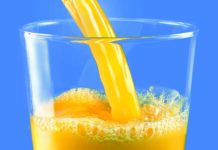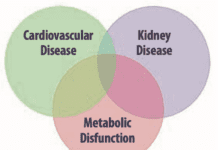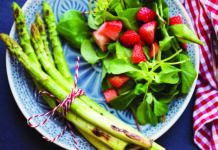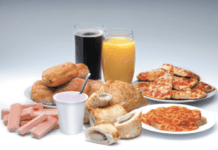ThinkStock
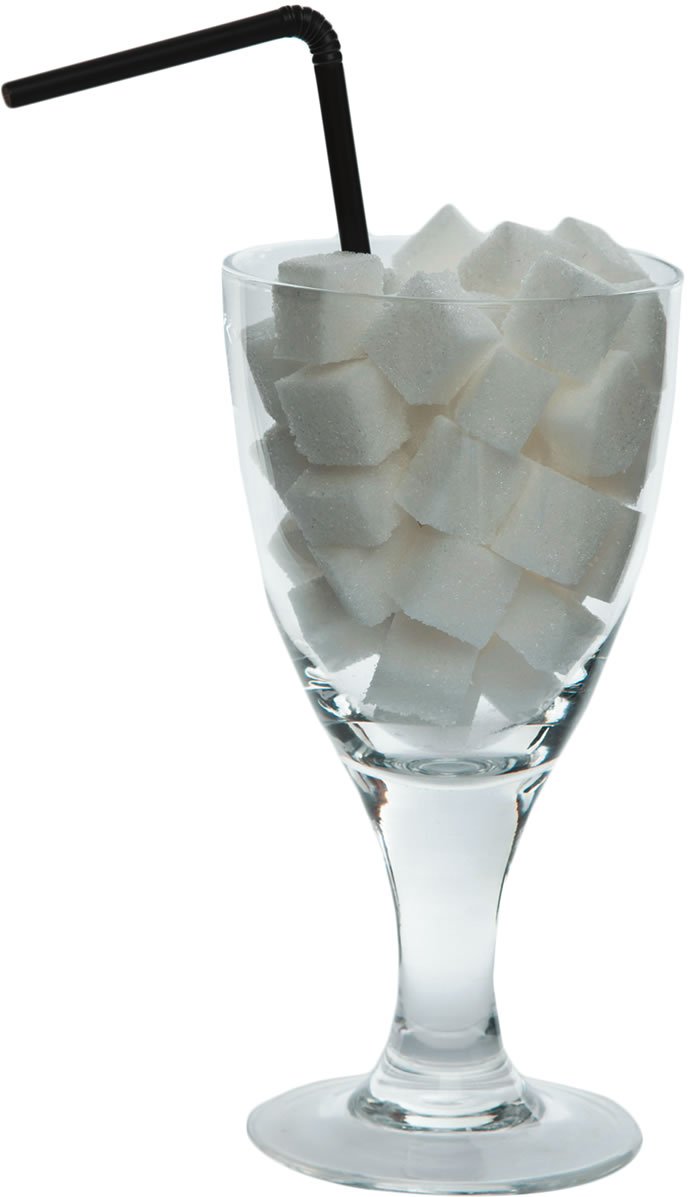

You know that sugar-sweetened sodas can pack on the pounds and contribute to the risk of heart disease and diabetes. But new Tufts research reports that sugary drinks may also increase your odds of developing non-alcoholic fatty liver disease (NAFLD).
Characterized by a buildup of fat in the liver unrelated to alcohol consumption, NAFLD frequently goes undetected because it often presents no symptoms; as many as 25% of US adults may have the disease. NAFLD may cause the liver to swell, leading to scarring (cirrhosis) over time and even to liver cancer or liver failure.
Nicola McKeown, PhD, a scientist in Tufts’ HNRCA Nutritional Epidemiology Program and senior author of the study, says, “Although there is much more research to be done, sugar-sweetened beverages are a source of empty calories, and people need to be mindful of how much they are drinking, perhaps by reserving this habit for special occasions.”
NOT JUST SODA: Tufts researchers analyzed 2,634 self-reported dietary questionnaires from participants in the National Heart Lunch and Blood Institute (NHLBI) Framingham Heart Study’s Offspring and Third Generation cohorts. The sugar-sweetened beverages on the questionnaires included caffeinated and caffeine-free colas, other carbonated beverages with sugar, fruit punches, lemonade and other non-carbonated fruit drinks. (A serving size was considered a glass, bottle, or can of these beverages.) Participants underwent a CT scan to measure the amount of fat in the liver.
Published in the Journal of Hepatology, the study found a higher prevalence of NAFLD among people who reported drinking more than one sugar-sweetened beverage per day compared to people who said they drank none. This association persisted after adjusting for age, sex, body mass index (BMI), and dietary and lifestyle factors such as calorie intake, alcohol and smoking. After accounting for these factors, however, there was no association between diet cola and NAFLD risk.
Sugar-sweetened beverages are a major dietary source of fructose, the sugar that is suspected of increasing risk of NAFLD because of how our bodies process it.
McKeown adds, “The cross-sectional nature of this study prevents us from establishing causality. Future prospective studies are needed to account for the changes in beverage consumption over time as soda consumers may switch to diet soda and these changes may be related to weight status.”
LABEL SMARTS: The US Food and Drug Administration has proposed requiring the amount of added sugars to be listed on Nutrition Facts labels, which would help identify beverages other than sodas that could contribute to NAFLD risk. In the meantime, check the ingredients list. Popular orange drinks, for example, contain water, high fructose corn syrup and less than 2% actual juice. The top three ingredients in commercial “fruit punch” drink are “pure filtered water,” high fructose corn syrup and sugar.
If you choose to drink juice, be sure the label says it is 100% juice with no sugar added. But keep in mind that you won’t save any calories by consuming fruit juice, which also contains more fructose than corn syrup or sugar. In general, whole fruit (fresh, frozen or canned in water) is a better way to get the nutrients found in fruits.
Other popular drinks, such as frozen coffee or fruit drinks, sports or energy drinks, contain several teaspoons of sugar that consumers may not be aware they are consuming.
Although the study found no link between NAFLD and artificially sweetened diet soda, don’t forget beverage options that contain no sweeteners at all. (See box.) And when you’re thirsty, the best bet is still the original beverage—water.
You may be reluctant to switch from sugar-sweetened soft drinks to diet sodas because of safety concerns. Most of these worries are urban legends and unsubstantiated Internet rumors. According to the FDA, Food safety experts generally agree there is no convincing evidence of a cause-and-effect relationship between these sweeteners and negative health effects in humans. The FDA has monitored consumer complaints of possible adverse reactions for more than 15 years.
Questions have also been raised about whether non-caloric sweeteners might somehow nonetheless contribute to weight gain. While its best not to overdo diet drinks, Tufts experts say artificial sweeteners remain a good option for people who are working to control their weightbut that water should be your first choice. Tufts Nicola McKeown adds, Although minus the sugar, diet sodas may be loaded with caffeine, and drinking too much may lead to loss of sleep and other deleterious health effects.
For complete coverage of artificial sweeteners, see our August 2014 Special Report, Smart Substitutes for Sugar.
Consider unsweetened alternatives when choosing beverages. Besides plain wateralways a good choicetry these ideas:- Plain or sparkling (unsweetened) water with a squeeze of lemon or lime juice.- Plain iced tea, including herbal teas.- Hot coffee and tea, without added sugar or fatty dairy products.- Infused water, made by refrigerating water with sprigs of mint, crushed berries or slices of cucumber.

